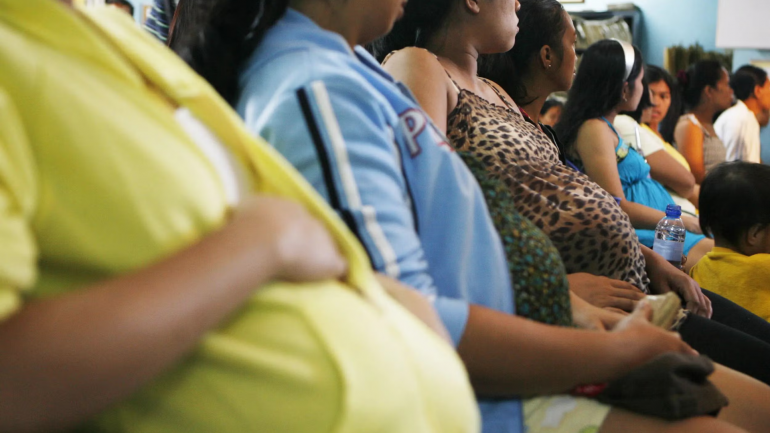Philippines: Commission on Family and Life opposes sexuality education, adolescent pregnancy prevention bill

The Commission on Family and Life of the Archdiocese of Manila expressed dissent to the implementation of the Comprehensive Sexuality Education (CSE), and Senate Bill 1979, which seeks policy legislation to counter adolescent pregnancy.
In a statement made public on January 23, the commission said Senate Bill 1979, known as the Adolescent Pregnancy Prevention Act, would encroach on parental rights and responsibilities.
“The bill seeks to implement a standardized curriculum that covers not just the biological aspects of sexuality, but also ideologies and practices that may not align with the values of the majority of Filipino families,” the commission said.
The commission noted that the bill would violate parental rights to raise their children in accordance with their faith, values, and beliefs.
According to the commission, parental intervention is “essential in shaping a child’s understanding of sexuality, relationships, and morality, and it is vital that this right is respected.”
The commission explained that both the Senate bill and the implemented CSE curriculum espouse conduct that is contrary to the moral teachings of the Catholic Church.
“While it is important to discuss human sexuality in an age-appropriate manner, we believe that such discussions should be rooted in a framework that upholds the dignity and sanctity of the human person, as well as the virtues of chastity and respect for oneself and others,” the commission said.
According to the commission, the curriculum and the bill could encourage sexual behaviors that are “inconsistent with the Filipino cultural and religious context.”
“We fear this will lead to the erosion of traditional Filipino values and contribute to the normalization of sexual experimentation among the youth, which can have negative psychological and physical consequences,” the commission said.
The commission also observed that the bill “lacks clear, enforceable safeguards” and could not guarantee that instruction would align with the moral, spiritual, and psychological development of the young.
“We believe that the right approach to educating children and young people about human sexuality lies in an approach that emphasizes not only the biological aspects but also the moral, emotional, and relational dimensions of human sexuality,” the commission said.
Sexuality education must revolve around the sanctity of life, the importance of chastity, the value of responsible relationships, and marriage as the proper context for sexual relations, the commission noted.
“Such an approach, rooted in respect for the dignity of the human person, will provide young people with the tools to make informed, responsible, and moral decisions regarding their bodies and relationships,” the commission said.
The commission also observed the bill, when passed in its current version, could require schools run by religious institutions to instruct contents not aligned with the teachings of the Church.
“This would put faith-based schools in a difficult position of having to choose between complying with the law and maintaining their commitment to religious education,” the commission said.
Meanwhile, Senator Risa Hontiveros, author of Senate Bill 1979, expressed disappointment over disinformation targeting the bill.
“I am saddened that discussions on the bill have been muddled by so much disinformation,” she said in Taglish in a social media post on January 23. “They said the bill encourages 0-4 years old masturbation, anal sex, oral sex, and other concepts not appropriate for children, the public was alarmed. I repeat these things are not in the bill. And this will never be part of any bill that I will push.”
Reacting to the bill, President Ferdinand Marcos on January 20 said “I was shocked, and I was appalled by some of the elements of that [Senate Bill 1979]. Because all this ‘woke’ [attitude] that they are trying to bring into our system.”
“But to include the so-called ‘woke’ absurdities is abhorrent to me—and I’m already guaranteeing, this would not be passed into a law if this bill is passed in that form,” Marcos said.
Hontiveros in response said it was not true that the bill would teach children as young as four years old the concepts of masturbation and different sexualities.
“Mr. President, with all due respect, it’s clear that even the word ‘masturbation’ is not in the bill. It also did not mention ‘try different sexualities,’” Hontiveros said in a statement.
Marcos told reporters yesterday that he needs to “read the substitute bill first.”
Hontiveros filed a substitute version of the bill after critics took a swipe at the bill.
She removed the phrase ‘guided by international standards’ due to concerns raised by people.
“We have limited the CSE to adolescents 10 years old and above,” Hontiveros said in Taglish. “We have also introduced a provision guaranteeing academic and religious freedom.”
Hontiveros also clarified the bill does not draw from the Standards of Sexuality Education in Europe, which encourage self-sexual pleasure among the young.
Hontiveros and her supporters cautioned people on disinformation targeting the bill.
Based on DepEd Order No. 31, series of 2018, the CSE is a “curriculum-based process of teaching and learning about cognitive, emotional, physical and social aspects of sexuality that is scientific, age-and-developmentally appropriate, culturally and gender-responsive, and with a rights-based approach.”
The implementation guidelines for the CSE in public and private schools were released by the Department of Education in 2018. Senate Bill 1979 outlines its implementation.
Radio Veritas Asia (RVA), a media platform of the Catholic Church, aims to share Christ. RVA started in 1969 as a continental Catholic radio station to serve Asian countries in their respective local language, thus earning the tag “the Voice of Asian Christianity.” Responding to the emerging context, RVA embraced media platforms to connect with the global Asian audience via its 21 language websites and various social media platforms.













